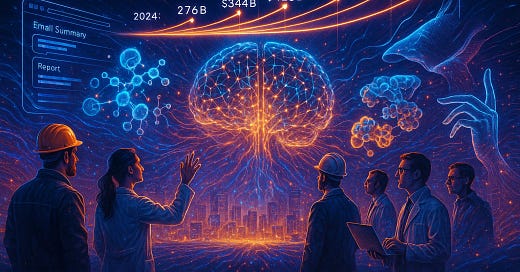Imagine a world where artificial intelligence doesn't just answer questions but anticipates needs, drafts reports, designs drugs, and even edits reality itself. It's not a distant future—it's this week in July 2025. In a flurry of announcements that felt less like product launches and more like the synchronized firing of neurons in a global brain, AI companies unveiled tools that push the boundaries of what's possible.
From browsers that think for you to models that reshape proteins at warp speed, these developments aren't isolated breakthroughs. They're interconnected shifts, much like how a single idea in a network can cascade into widespread change. As we stand at this inflection point, with the global AI market projected to surge to $826 billion by 2030, up from $222 billion in 2024, the question isn't if AI will transform work—it's how quickly we'll adapt.
Keep reading with a 7-day free trial
Subscribe to The Most Important News to keep reading this post and get 7 days of free access to the full post archives.





